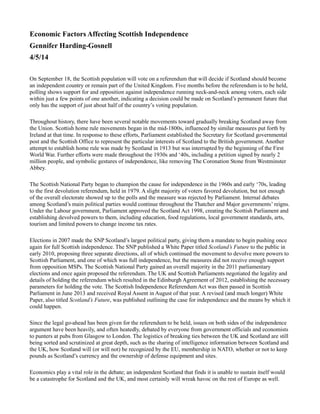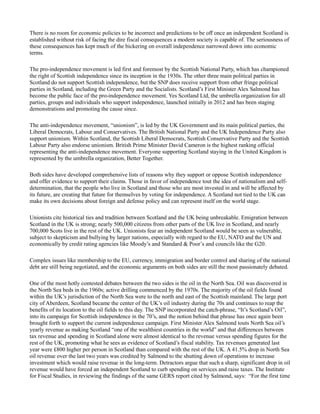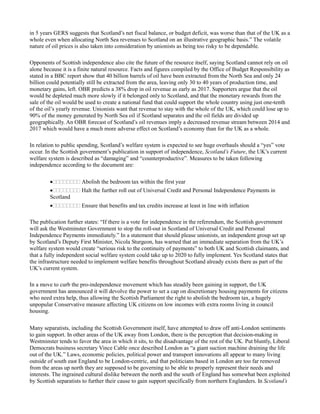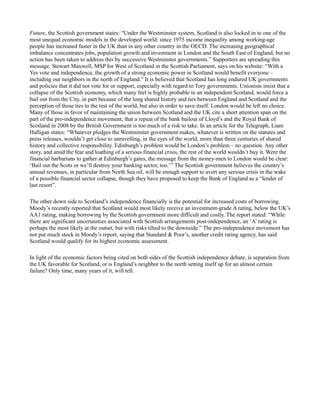The document summarizes the key economic factors in the Scottish independence debate. It discusses Scotland's historical economic relationship with the UK and the roles of oil revenues and public spending. The debate centers around issues like EU and NATO membership, currency, and the sustainability of Scotland's economy and public services without support from the UK. Supporters and opponents each cite economic evidence for their positions, but the long-term economic impacts remain uncertain and will only be clear many years in the future.



